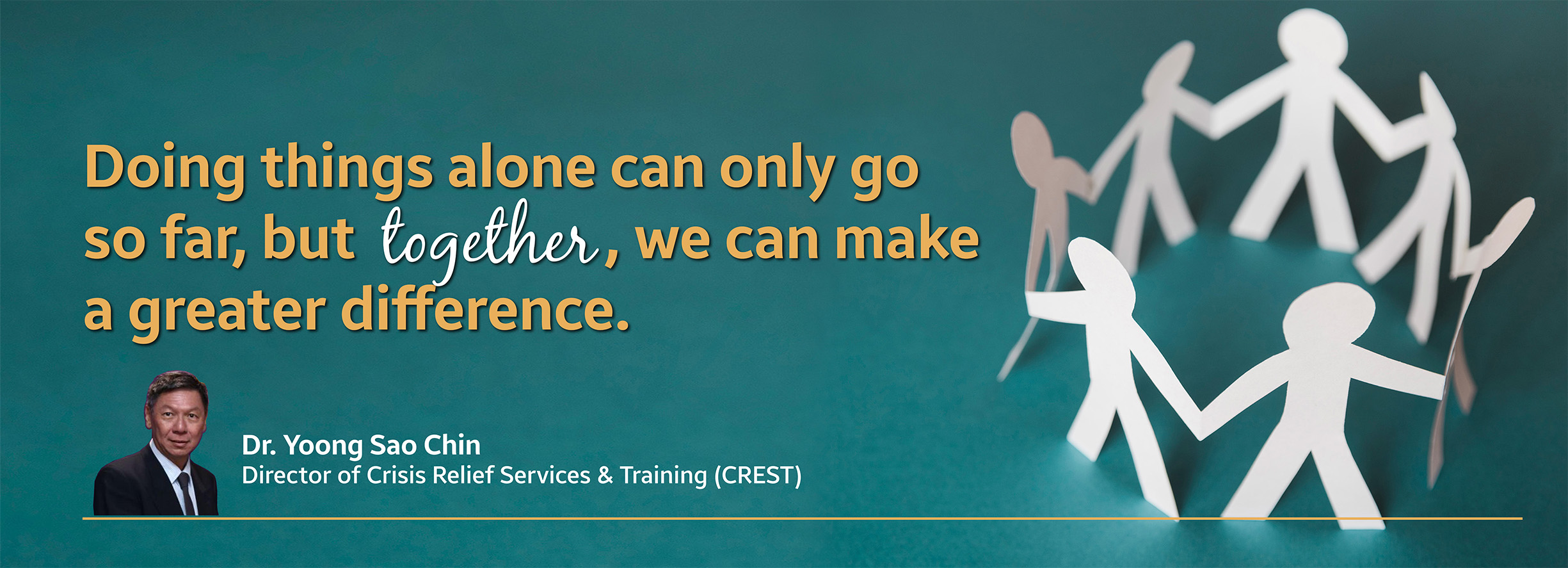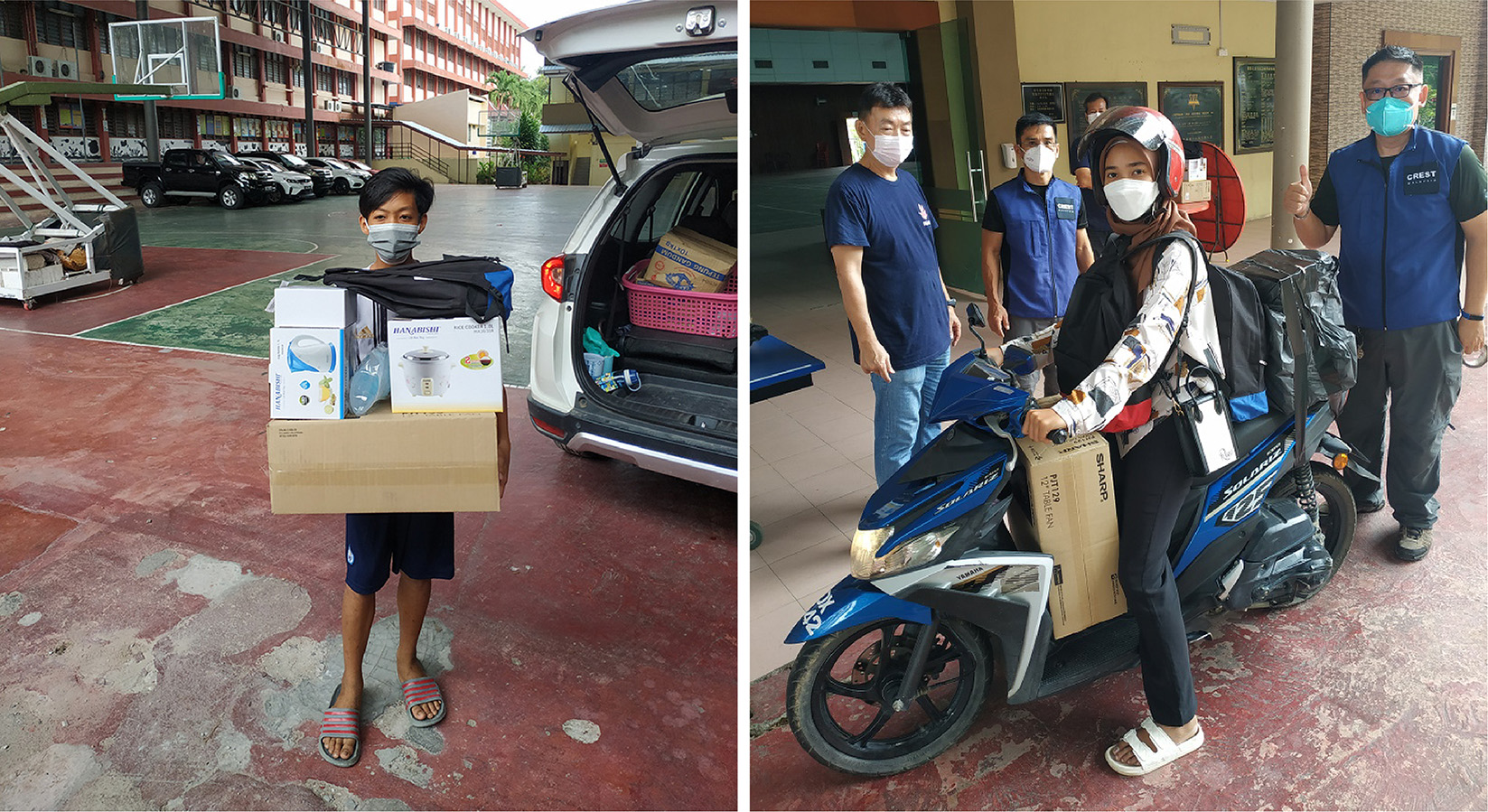Kaarthiega Anantan

Reflecting on his more than three decades of volunteering journey, he vividly recalled his first-ever mission to the Penan tribe along the Baram River, Sarawak, in 1990, like it was just yesterday. Accompanied by his medical team, the then newly graduated medical doctor travelled to many villages along the river where basic facilities were almost non-existent.
These early beginnings were crucial in his formative years as they shaped his contribution to the disaster arena. “Medical camps do help poor communities. However, the impact is of limited scope and only offers short-term solutions. We can treat their worm infestations, but unless we teach them hygiene, sanitary methods or the importance of footwear, we are merely caressing the surface wherever we go,” he said.
This eye-opening experience was a major turning point in his life. His passion for bringing sustainable solutions to those in need inspired him to join CREST. Established in 1998, the non-profit disaster relief organisation trains and mobilises volunteers to provide sustainable humanitarian assistance nationally and regionally.


CREST distributing essential items to mid-December 2021 flood victims in Sri Muda, Klang Jaya and Termerloh areas.
Dr. Yoong’s journey with CREST started with a solo trip to Nias Island, Indonesia, in 2005 when the powerful 8.4-magnitude Sumatran earthquake wrecked the entire capital city of Gunung Sitoli, destroying essential services, including hospitals. During this mission, he saw how vulnerable victims are forced into more extreme levels of poverty due to loss of livelihoods and he realised this is where crisis efforts must be continued to uplift their socioeconomic status.
Sustainable programs such as restoring clean water sources, income-generating schemes, and public health methods remain CREST’s cornerstone of a post-disaster recovery strategy. “We address the needs of victims during and beyond the emergency phase by providing durable solutions that will leave long-lasting impacts on the communities we serve,” he explained.
This statement stands true as he recounted his recent trip to Myanmar. In 2008, when Cyclone Nargis struck the Irrawaddy Delta killing nearly 85,000 people, Dr. Yoong helped build fifteen early child development centres for the local children. “Today, those children have grown to become teachers and nurses. Seeing them contributing back to the community brought immense fulfilment and served as a reminder that our work is on the right track,” he said.
Last year when the COVID-19 pandemic hit Malaysia, CREST converted two hotels into donor-funded, volunteer-run private quarantine centres to serve about 1,000 patients in the B40 group for free. In line with Gamuda’s group-wide vision to drive our ESG objective, this transformative approach helped CREST bag the SGHA and the coveted Gamuda Inspiration Award (GIA).
Winning the awards put CREST on the map and created more awareness of its initiatives. “By gaining the mainstream media coverage, we were nationally recognised, and more people have reached out to us for medical advice and isolation spaces. The awards certainly raised CREST to another level,” he explained. Since then, CREST has been working on various local and international crises.
Even after 17 years of being part of CREST, the 2018 British Council’s Social Impact winner believes his journey as a volunteer has a long way to go and being endowed with good fortune, health and talent comes with significant responsibility and in this case – to serve the less fortunate people.
“Significant humanitarian ventures are not the result of any single individual. Many nameless volunteers pooled their resources together to achieve what we did over the years. We never embarked on this road expecting recognition. Still, along the way, if we receive any, we owe it all to the thousands of volunteers before us who made this humanitarian work possible,” he explained.
With many crisis intervention initiatives in the pipeline, CREST looks forward to seeing more Gamudians step forward to deliver sustainable legacies for a better world. “The task that awaits us is to stand together for the betterment of lives that are not as fortunate as ourselves. Let us then bear the torch to lead the way forward for those who sit in darkness after a cataclysmic event,” Dr. Yoong concluded.
